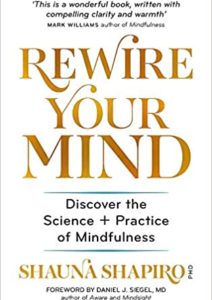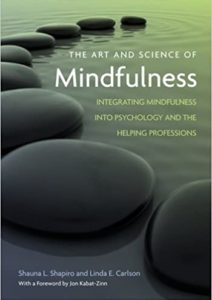Many people used the extra free time they had in 2020 due to the lockdowns for self-reflection. So, in this Expert Insight Interview, Shauna Shapiro discusses the concept of mindfulness and self-compassion. Shauna Shapiro is a Ph.D. clinical psychologist, best-selling author, speaker, internationally recognized expert in mindfulness and self-compassion, and professor at Santa Clara University.
The interview discusses:
- What does it mean to be mindful?
- How to practice mindfulness?
- What does it mean to be self-compassionate?
- Mindfulness at work
Mindfulness
Being mindful means being present at the moment, thus learning how to train and stabilize our attention at the moment. When we pay attention to the things we care for and value the most, we realign with our internal compass. Moreover, we should always approach mindfulness with kindness and curiosity because that way, we turn on the learning centers in the brain, and we free up our creativity, memory, and best possibilities for everyday life.
Practice Mindfulness
People who practice mindfulness are happier, sleep better, and diet better. Firstly, we learn how to set an intention, which means asking ourselves why this is important for us. The second step focuses on training our attention to comes back in case if our mind wanders. And the last step is having the attitude of kindness, which means not getting mad at ourselves if our attention wanders off but bringing it back calmly. Mindfulness is a mental practice, and by the definition of neuroplasticity, anything we practice will go stronger.
Self-compassion
Self-compassion is the crucial factor for people to change because it breaks the cycle of judgment and shame. People with self-compassion are more likely to take accountability for their actions, more compassionate and forgiving towards others, thus have higher-quality relationships with others.
Mindfulness at Work
Our biggest distraction nowadays is our smartphone. People who practice mindfulness at work can pay attention better and actively listen to their customers when they talk, which is very beneficial for salespeople. By connecting to someone and paying attention to them, we make them feel validated. However, since this is a mental practice, we have to train to pay attention every day so that we do not get out of shape.
People do not really know what their true intentions are, so it is so easy to start doing things automatically, and that is why we need mindfulness to wake us up. By learning to listen, we connect our mind and body to do what is most valuable to us. And lastly, this practice does not need to take a lot of time from us. We can start by separating only 5 percent of our time during the day, and we will see the change within us.
Our Host
John is the Amazon bestselling author of Winning the Battle for Sales: Lessons on Closing Every Deal from the World’s Greatest Military Victories and Social Upheaval: How to Win at Social Selling. A globally acknowledged Sales & Marketing thought leader, speaker, and strategist. He is CSMO at Pipeliner CRM. In his spare time, John is an avid Martial Artist.












Comments